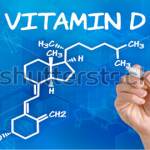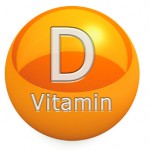(Reuters Health)—Vitamin D supplementation may not improve bone density or prevent fractures and falls in adults, a large new analysis suggests.
After combining data from 81 randomized controlled trials, researchers found no bone benefits from supplementing the vitamin, according to the report in The Lancet Diabetes & Endocrinology, online October 4.
“Our results show that there is little reason for adults to take vitamin D supplements for their bones to protect against fractures, except people from high risk groups, such as those who have a prolonged lack of exposure to sunshine,” said study coauthor Dr. Alison Avenell of the University of Aberdeen in the UK. “For example, older people in institutions who never go outside.”
Vitamin D supplements have long been recommended to seniors for treating and preventing the bone-thinning disease osteoporosis. Avenell and her colleagues would like to see guideline changes that steer people away from the supplements.
For the new study, Avenell and her colleagues scoured the medical literature for studies that examined the impact of vitamin D supplementation on bone health. Ultimately they settled on 81 trials with a total of 53,537 participants. The length of time participants were studied varied widely, ranging from four weeks to as long as five years. More than three quarters of the trials included women over age 65.
Although most of the trials lasted a year or less, “25 trials had follow-up longer than one year,” Avenell said in an email. “There were eight trials with over 33,000 participants that followed people up for three to five years. So the majority of the data comes from large, long-term trials.”
The researchers did not calculate a median or average age for participants in the studies, but most were 65 or older, Avenell noted.
Most of the trials did not focus on participants with bone issues. But, Avenell said, “one trial recruited people with low bone density, one with osteoporosis, six with people who had previous fractures – including one of the biggest with over 5,000 participants – 17 others were in older people from falls clinics, nursing homes or hospitals where increased risk of fracture was likely. Very few trials were in healthy younger populations.”
When the researchers pooled the data from all 81 trials, they found that vitamin D supplementation had no effect on the number of fractures and falls. Nor did the dosage of vitamin D seem to make any difference. Supplements also didn’t appear to increase bone density.
One big issue in studying vitamin D is there is no consensus on what’s a healthy level of the nutrient, Avenell said.
“There’s a lot of disagreement between different bodies producing guidelines around the world,” she added. “Our work would suggest that it’s a lot less than people have thought.”
While the new findings may hold true for the average person, they may be wrong for people whose bones have already thinned, said Dr. Ethel Siris, director of the Toni Stabile Osteoporosis Center at NewYork-Presbyterian/Columbia University Irving Medical Center and a professor of medicine at Columbia University.
“The main reason older women begin to lose bone mass and to have fractures is loss of estrogen at menopause,” Siris said. “A risk factor for it getting worse is low levels of calcium or vitamin D. There’s an argument about how much is needed, but if there’s a bone problem already, you want to make sure you’re adequately covered with respect to calcium and vitamin D.”
The risks associated with vitamin D are tiny, Siris said. “And while we’d rather people got their vitamin D through their diet, we will add a pill if necessary. My patients can’t afford to have a vitamin D deficiency.”
The bottom line on the new study, Siris said, “is it’s not changing my point of view with respect to the types of people I take care of.”
Siris said she’s concerned that news about the new research will convince people who already have brittle bones to stop taking their vitamin D supplements. “People read (news stories) about these things and assume what they read yesterday is the current truth,” she added.
Reference
-
Mark J Bolland, PhD, Andrew Grey, M, Alison Avenell, MD, et al. Effects of vitamin D supplementation on musculoskeletal health: a systematic review, meta-analysis, and trial sequential analysis. The Lancet. 2018 Oct 4. https://www.thelancet.com/journals/landia/article/PIIS2213-8587(18)30265-1/fulltext


